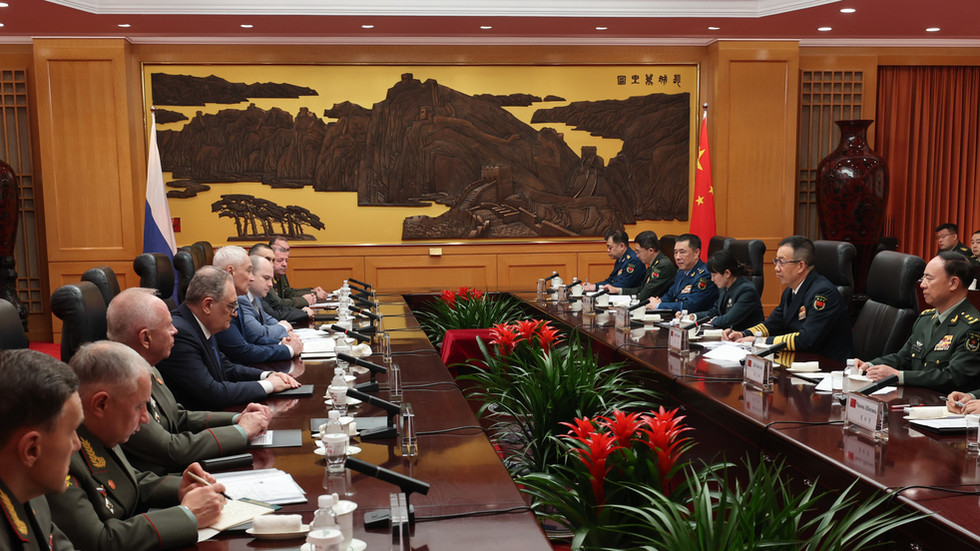Recent developments have highlighted China’s role in the ongoing conflict between Russia and Ukraine, drawing the attention of international observers and officials. American Deputy Permanent Representative to NATO, Julianne Smith, has explicitly accused China of materially supporting Russia amid the war, undermining its claimed position of neutrality. According to Smith, while China attempts to present itself as a neutral arbitrator in the conflict, it is actually shifting the balance of support toward Russia. The accusation coincides with the Pentagon’s announcement of a new military aid package for Ukraine, valued at $425 million. This package is intended to bolster Ukraine’s defenses with anti-air missiles, artillery shells, and armored vehicles, illustrating the U.S. commitment to assisting its ally in the face of Russian aggression.
In contrast to these allegations, China has repeatedly denied providing any material support to Russia. Foreign Minister Wang Yi asserted that China is dedicated to fostering dialogue for peace in Ukraine and has been working towards a peaceful resolution. During a recent meeting with U.S. Secretary of State Antony Blinken at the UN General Assembly, Wang urged the United States to refrain from “smearing” China and accused it of using the Ukraine crisis to incite division and confrontation among countries. This exchange underscores the growing tension between the U.S. and China, particularly as Washington imposed sanctions on numerous Chinese firms and individuals perceived as assisting Russia in evading sanctions established by the U.S.
In early 2023, China outlined its 12-point peace plan for Ukraine and later collaborated with Brazil on a joint six-point plan aimed at conflict resolution. These diplomatic efforts reveal China’s attempt to position itself as a mediator in the evolving crisis. The Chinese government has also engaged in extensive shuttle diplomacy, sending envoys to promote discussions between Moscow and Kiev with the intention of fostering a ceasefire and potentially finding a long-term solution. However, this diplomatic posture stands in contrast to the strategic partnership that China and Russia have developed in recent years, marked by their mutual opposition to what they describe as American unilateralism in global affairs.
Highlighting the intricate dynamics of international relations, the relationship between China and Russia continues to flourish despite the ongoing conflict in Ukraine. Both nations have publicly acknowledged their strategic partnership, emphasizing cooperation in various sectors including economic and security matters. During a recent visit by Russian Defense Minister Andrey Belousov to Beijing, he noted that both nations share a “common assessment” of the global landscape, reinforcing the perception of alignment between the two powers. This alignment has raised concerns in Washington and among its allies, as the two countries strengthen their ties amid increasing tensions with the West.
The geopolitical landscape surrounding the Ukraine conflict continues to evolve, shaped by the actions and alliances formed by major powers including the U.S., China, and Russia. Smith’s assertions about China’s support for Russia underscore the complexities of the situation, where narratives of neutrality are challenged by the reality of international partnerships. As the U.S. continues to provide military support to Ukraine and impose sanctions on those aiding Russia, the expectations for China to act as a neutral party come into question, prompting discussions on the implications of its ongoing relationship with Moscow.
As this international scenario unfolds, the continued divergence between U.S. and Chinese perspectives on the Ukraine conflict results in heightened tensions and a potential reshaping of global alliances. The situation illustrates the intricate balance between diplomacy and intervention, with each nation navigating its foreign policy objectives amid competing narratives and strategic interests. As both the U.S. and China pursue their agendas, the prospect for peace in Ukraine remains uncertain. The interplay of military aid, sanctions, and diplomatic negotiations will undoubtedly define the future trajectory of the conflict and the broader implications for international relations in the 21st century.

